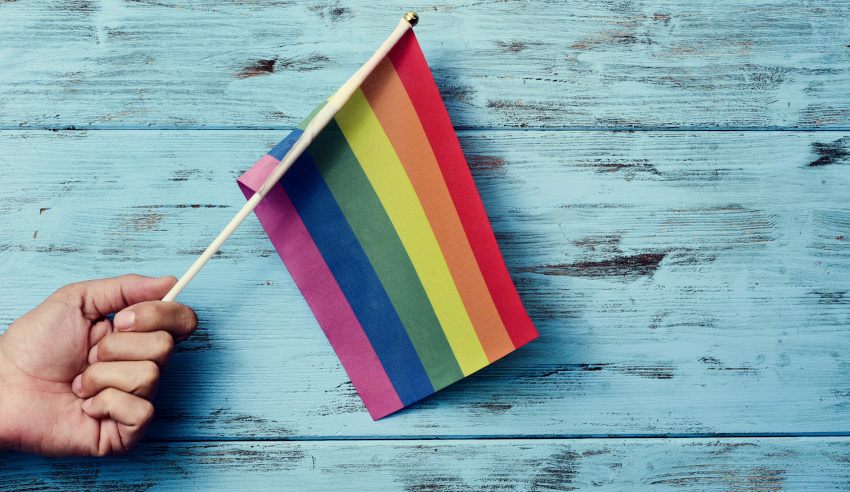Lawyers have underscored the importance of ensuring same-sex marriage legislation does not limit anti-discrimination protections.

After the same-sex marriage postal survey returned a 61.6 per cent ‘yes’ vote yesterday, all eyes turned to Canberra for the next stage of the process.
Regarding religious freedom, section 47 of the Marriage Act already allows members of the clergy to refuse to solemnise any wedding.
Mr Smith’s bill would extend this provision to marriage celebrants who are religious. It would also permit bodies established for religious purposes to “refuse to make a facility available, or refuse to provide goods and services, for the purposes of the solemnisation of a marriage”.
Liberal senator James Paterson had planned to introduce a competing bill but backed down yesterday afternoon.
“It is clear the majority of senators believe my colleague Senator Dean Smith’s bill is where we should start,” he tweeted.
“I will now work constructively with my parliamentary colleagues over the coming weeks on amendments to ensure that the strongest possible protections for the freedoms of all Australians are enshrined in the final legislation.”
Mr Paterson’s bill proposed two coexisting definitions of marriage: the current male-female union and a “union of two people”.
The bill shared similarities with Mr Smith’s but went beyond religious freedom, aiming to extend the right to refuse to solemnise a same-sex marriage to celebrants who hold a “genuine religious or conscientious” belief against it.
It is unclear what would legally constitute a genuine, secular, conscientious objection to same-sex marriage.
Mr Paterson’s bill also would have enabled individuals and businesses to refuse to provide goods and services for same-sex weddings, such as food and drink or the hiring of venues or vehicles, and would have allowed parents to remove their children from classes if the content was inconsistent with their beliefs.
Significantly, the Paterson bill would have watered down laws against discrimination and vilification by protecting expressions and acts based on a “relevant marriage belief” or “relevant belief”.
Those opposed to the bill argued that it essentially provided an exemption for discrimination against same-sex couples.
“As we move … to remove one form of discrimination we want to make sure we don’t put in place other forms of discrimination instead,” said Liberal senator Simon Birmingham earlier this week.
Law Council of Australia president Fiona McLeod SC told the ABC the Paterson bill went too far by seeking to allow people to refuse to provide goods and services on the grounds of “belief, thought and conscience”.
“You could see a situation where a hire car company could leave their customer stranded on the way to a marriage ceremony simply because the driver held a thought or belief against it,” she said.
“This is even if the belief had nothing to do with religion.”
Labor senator Penny Wong compared this provision to institutional racism, saying she “thought we had gone past the point in this country where we had signs that said ‘We don’t serve Jews, we don’t serve blacks’”.
Mr Paterson is expected to attempt to include elements of his bill as amendments to Mr Smith’s.
Ms McLeod said parliamentarians must ensure the legislation reflects the object of the survey.
“The people of Australia were asked if they wanted same-sex couples to marry and they have delivered a resounding ‘yes’,” she said.
“They have not been asked if Australia’s anti-discrimination protections should be wound back. This important distinction should be front of mind for all Parliamentarians.
“Australians have voted for marriage equality, they have not voted to erode anti-discrimination protections.
“Freedom from discrimination is a fundamental human right.
“Discrimination on arbitrary grounds, including sexual orientation, is contrary to Australia’s international human rights obligations.”
Caroline Counsel, a family law specialist based in Melbourne, told Lawyers Weekly the Paterson bill would have been a backward step for Australia.
“The Paterson bill was frankly retrograde and ran contrary to all advances made in eliminating discrimination from the face of legislation in our country,” Ms Counsel said.
“It allowed people to discriminate against those who, in accordance with the anticipated same-sex law, wished to marry. It would have allowed civil celebrants, florists, venue hire, bakers, hoteliers and anyone else who provides goods and services to say ‘no’ to same-sex couples.
“By contrast, the Smith bill proposes appropriate changes, consistent with the ‘yes’ vote, to the Marriage Act.
“This bill, however, still allows those of a religious persuasion to refuse to officiate at gay weddings. This is far more consistent with a ‘yes’ vote of 61.6 per cent of Australian[s] who participated in the postal survey.”
Law Society of NSW president Pauline Wright said the society would scrutinise any proposed legislation and forward its recommendations to the LCA to be included in its submission.
Ms Wright was criticised by law society members earlier this year for issuing a statement in conjunction with the heads of the NSW Bar Association and Australian Medical Association (NSW) in support of same-sex marriage.
Some society members, including Speed & Stracey CEO Robin Speed, said Ms Wright did not speak for them and had not adequately surveyed members before issuing the statement.
In a sober press release yesterday, the LSNSW said it “notes the outcome” of the postal survey.
The society will establish two working groups to advise on the proposed reforms. One group will be chaired by Mr Speed and will include two other members nominated by him. The other group will be appointed by Ms Wright, in consultation with the chairs of the society’s diversity and inclusion and human rights committees.
“These working groups will advise the law society about safeguards to protect existing freedoms and rights including rights of free speech, conscience, thought, religion, association, assembly and expression,” Ms Wright said.
“The views of all people should be respected. No person should be discriminated against or vilified because of their view.”